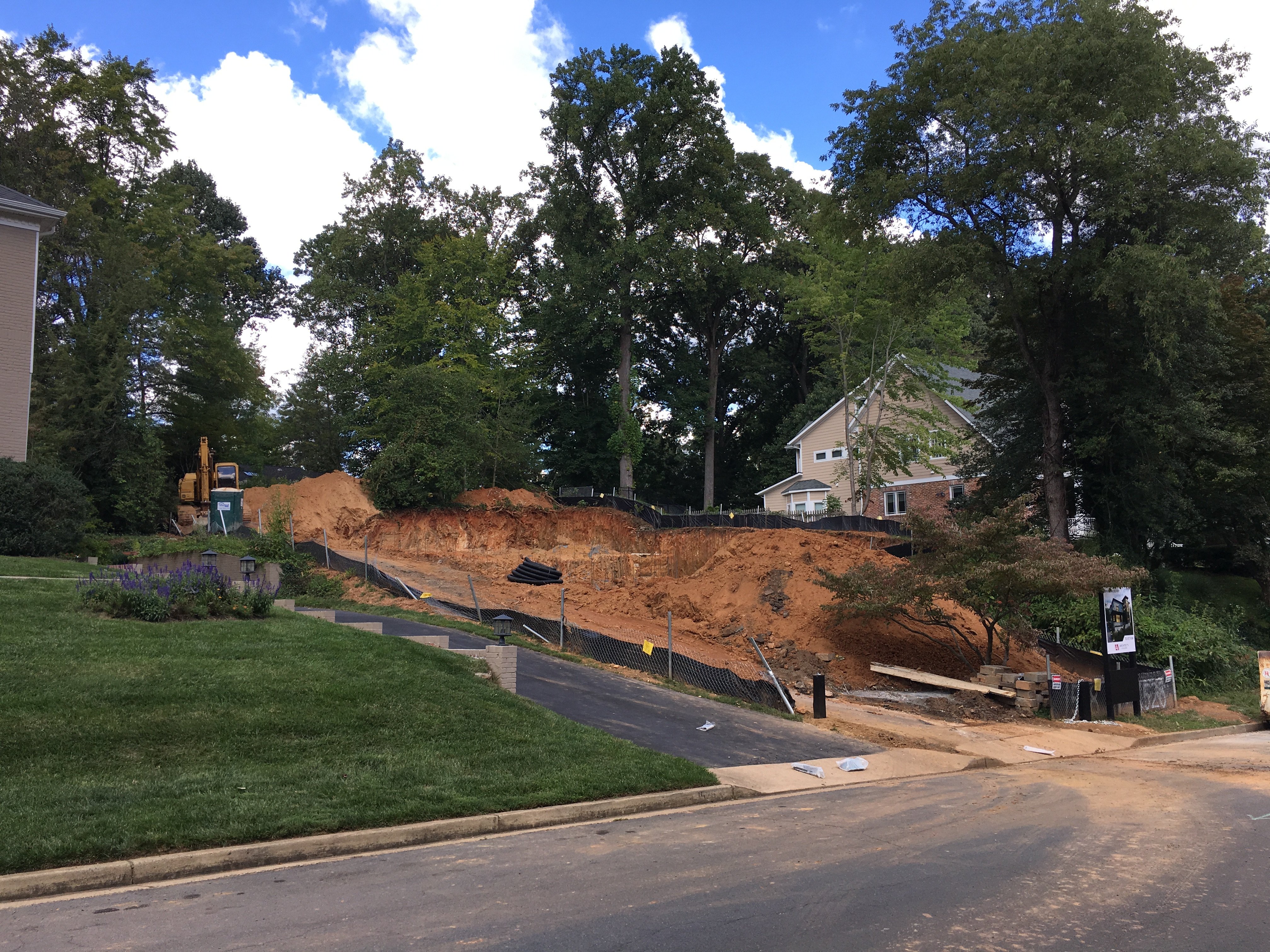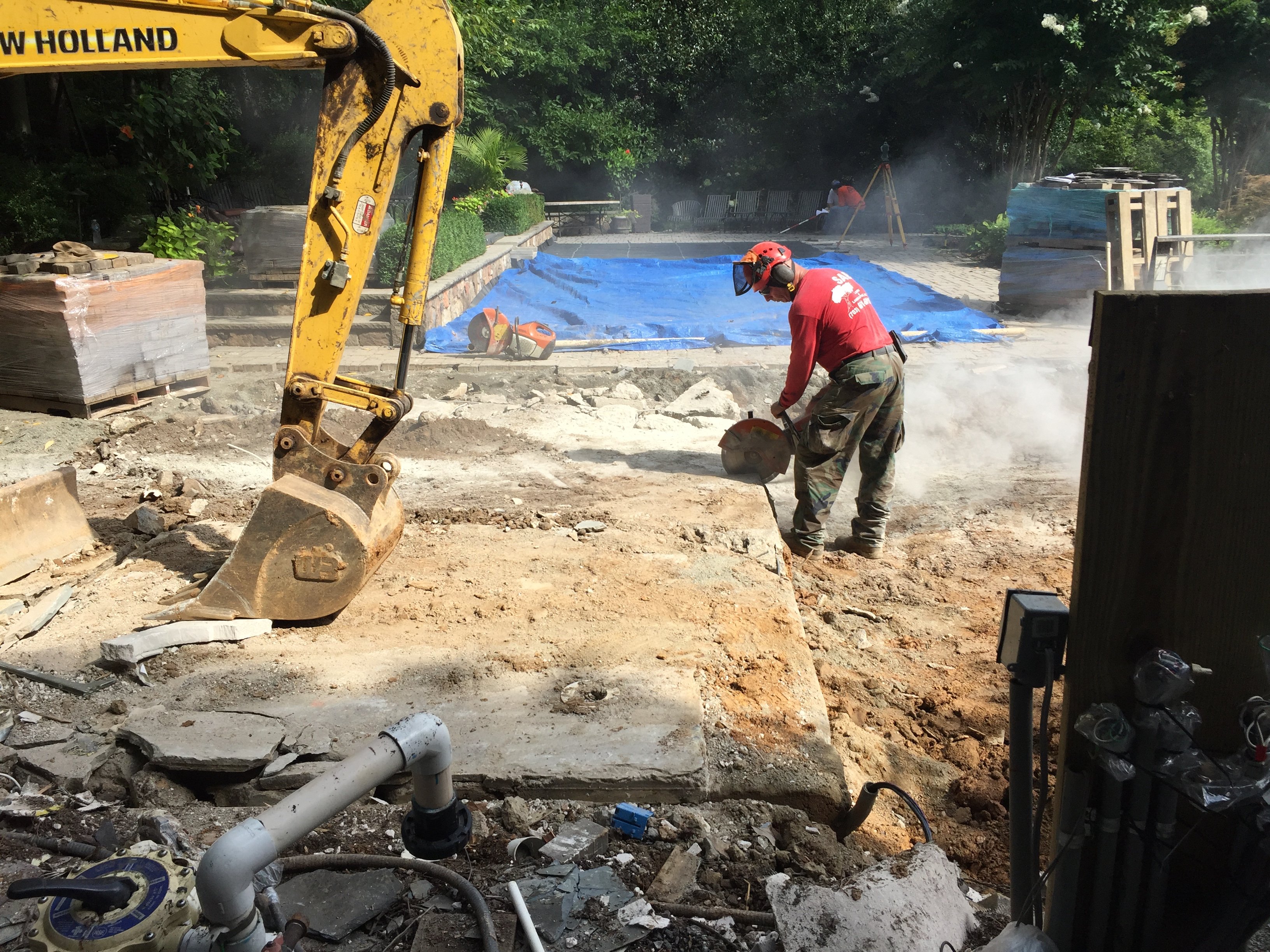
Ever thought about building your dream home? It's an exciting adventure that can feel overwhelming at times, particularly when it comes to looking at the costs. Many people are unaware of the existence of Site Development Costs when budgeting for their new home project and can feel surprised when they get the bill and wonder where those costs came from. These costs are often overlooked but can significantly impact your project's budget and timeline.
At AV Architects + Builders, we understand the intricacies of the home building process like no other. With over two decades of experience designing and constructing homes in this region, we've guided countless clients through their unique experiences with site development costs on their lots.
In this article, we're going to dive into the world of site development costs. We'll not only unveil the hidden facets of these expenses but also provide you with the knowledge and insights necessary to make informed decisions. From the demolition of existing structures to utility connections, from landscaping to stormwater management, we'll delve into the myriad components that constitute site development costs. By the end of this article, you'll be well-equipped to approach your new home construction project with confidence, armed with the understanding needed to navigate these costs effectively.
What are Examples of Site Costs?
1. Demolition of Existing House
Contrary to the perception that demolishing a house can run into hundreds of thousands of dollars, the cost is typically within the $15,000 to $20,000 range, making it a substantial but feasible expense for those planning to build a new home. This amount covers the demolition itself, site clearance, and removal of debris, making it a manageable part of the overall project budget.
It's important to note that not all houses are created equal. Most existing homes in Northern Virginia, especially those built before the 1970s, tend to be smaller, single-story structures with minimal or no basements. These homes, often referred to as ramblers, are relatively straightforward to demolish. In many cases, it takes as little as three days to tear down and clear the site completely.
2. Adding Dirt
One common site development cost involves adjusting the property's grade by adding quality dirt. This is necessary when specific areas of the property need to be raised or leveled. For example, if you're closing up a pool or eliminating a basement, adding dirt can help create a smooth, even surface for your new build.
3. Removing Dirt
Excavation during site development often leaves you with a substantial pile of dirt that needs to be removed. The cost of dirt removal can range from $10,000 to $60,000, depending on the volume of dirt and the accessibility of the site. Dirt removal involves transporting the excavated soil to an approved location, such as a dirt disposal site, and is typically done truck by truck.
4. Creating or Repaving a Driveway
The cost of creating or repaving a driveway varies based on factors like its size, shape, and whether it's a new installation or a replacement. If there was a driveway on the property previously, the ground may already be somewhat compacted, which can reduce the cost of preparing the site for a new driveway. Driveway preparation includes grading the area and then laying the asphalt or another suitable material.
5. Utility Connections
As a fundamental part of any property development project, utility connections include: water, gas, electricity, and sewage. The availability of public utilities on your property may depend on the location and condition of your lot.
Public Water: This option involves paying for the connection and usage of county-provided water services. The availability of this utility usually requires a water pipe to be already accessible from the street of the property and need only be extended to the new house.
Well Water: If you opt for a private well, it involves drilling for a well, conducting a Well Test, and consulting with an engineer to determine the optimal well location. The Well Test assesses the well's yield (gallons per minute) and viability for various purposes, such as irrigation and household use.
Public Sewer: A service provided by the county where they take the sewage off your property and process it elsewhere.
Septic System: Private septic systems use the ground and dirt to absorb and process the sewage all on your property, moving from septic tanks to the septic field. When planning for a private septic system, you will need to conduct a Perc Test to ensure that the property "percs" for the number of bedrooms you plan on building. If you are thinking about using a septic system for your new home, consider conducting a perc test on a lot before you purchase it so that you can confirm the perc capability of the soil for your future septic field.
Natural Gas: Natural gas can be sourced from the ground or tapped into a nearby natural gas line and payment is made to the gas company that owns said line.
Propane Tank: In some cases, properties may not have gas lines nearby, necessitating the use of propane tanks. Propane is delivered and refilled regularly by a gas company, providing gas for various household needs, including cooking, water heaters, furnaces, and fireplaces.
Electricity: The electric company is responsible for bringing electricity to the property. The cost of connecting to the electrical grid is typically part of the site development expenses.
6. Tree Removal
Tree removal may be necessary to remove trees that may be obstructing the construction entrance. The cost of tree removal can be a substantial portion of the site costs if your lot is located in a wooded area. Some counties have local regulations that specify tree protection measures that can require replanting and replenishing the tree canopy within a certain time frame or preserving existing trees during construction.
7. Landscaping and Outdoor Features
Landscaping costs can vary significantly depending on the extent of your landscaping plans. Basic landscaping, including seeding, straw, and basic planting, may cost around $50,000. However, for more extensive landscaping projects that include elements like irrigation systems and outdoor lighting, the price can range from $100,000 to $200,000 or more.
8. Stormwater Management
Stormwater management is essential to prevent flooding and erosion. This involves creating features such as infiltration trenches or planter boxes that manage water runoff from the roof and direct it into the soil, allowing it to gradually seep in. The cost of stormwater management can vary based on the property's size and local regulations, but can be in the range of $30,000 to $75,000. Smaller lots often have stricter requirements to prevent flooding and environmental damage.
9. Resource Protection Area (RPA)
If your property is near a resource protection area (RPA), it can impact site development costs and restrict certain activities to protect the environment. RPAs are designated to safeguard critical natural resources such as wetlands, rivers, and streams.
10. Pool and Pool Deck
Installing a pool and pool deck can be a significant site development expense, starting at around $200,000 to $400,000. The actual cost depends on factors like the pool's size, design, and additional features.

The cost of site development to prepare for new construction is an essential consideration when budgeting for your new home project. Many people overlook this important factor when researching how to build a new home, but it is important to consider these site costs when searching for the right lot as significant site costs can affect both your project’s budget and timeline.
Understanding these costs and carefully planning for them is essential to ensure a successful and financially sound development project. Keep in mind that all site costs can vary depending on the specific lot, local regulations, and the complexity of the project. Thorough research, budgeting, and collaboration with experienced professionals are key to navigating these costs effectively and making the best decisions for your home building journey!